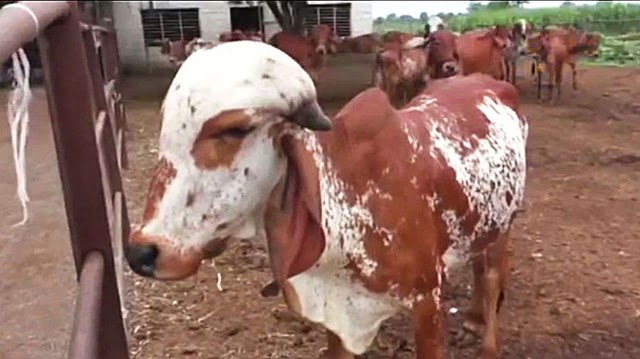Quck answer
Indian scientists have discovered that the urine of rare Indian cows contains gold. The cows, known as Gir cows, are found in the western state of Gujarat and are believed to be the only type of cows in the world that excrete gold in their urine. The researchers found that the urine of these cows contains up to three milligrams of gold per liter, which is worth around . The discovery has attracted interest from various industries, including pharmaceuticals and nanotechnology, as the gold in the urine could potentially be used for medical purposes and in the production of nanoparticles.
Wild Animals

Researchers at Junagadh Agricultural University in Gujarat, India have discovered gold in the urine of a rare breed of indigenous cows following four years of research. The team analysed samples from 400 gir cows and found traces of ionized gold salts in the urine of young calves, mature cows and older cows. Between 3 to 10 milligrams of gold per liter of urine was isolated, precipitated, extracted, solidified and melted by scientists. Over 5,000 different chemical compounds were identified, including 388 with medicinal properties. The amount of gold varied depending on the age of the cow and the type of feed it consumed. Gir cows are native to Gujarat and are characterised by their hump, domed head, pendulous ears and downward-growing horns. Only a few thousand purebred gir remain in Gujarat due to a local preference for buffalo milk and its higher fat content.
FAQ
1. What is the significance of gold found in urine of Indian cows?
The significance of gold found in urine of Indian cows is that it has potential medical properties. According to Ayurveda, an ancient Indian system of medicine, gold has therapeutic benefits and can be used to treat various ailments. Additionally, the urine of Indian cows is believed to contain several medicinal properties and is used in traditional medicines.
2. How is the gold extracted from cow urine?
The gold is extracted from cow urine by a process called biomineralization. In this process, gold ions are absorbed by the cow’s body and then processed into gold nanoparticles. These nanoparticles are then excreted in the urine. To extract the gold, the urine is collected and processed using various chemical and physical methods.
3. Is the gold found in cow urine pure?
The gold found in cow urine is not pure and is present in very low concentrations. The concentration of gold in cow urine is typically less than one part per billion. However, the gold nanoparticles found in cow urine are believed to have unique properties that could be useful in medicine.
4. Can the gold found in cow urine be used in medicine?
Yes, the gold found in cow urine has potential medical applications. It is believed that the gold nanoparticles found in cow urine could be used to develop new drugs for various ailments. Additionally, the nanoparticles could be used in diagnostic tests and imaging techniques.
5. Are all Indian cows capable of producing gold in their urine?
No, not all Indian cows are capable of producing gold in their urine. The gold found in cow urine is only present in certain rare breeds of cows, such as the Gir cow. These cows are native to the Indian state of Gujarat and are known for their high milk production and medicinal properties.
6. Is there any research being done on the medical properties of gold nanoparticles found in cow urine?
Yes, there is ongoing research being done on the medical properties of gold nanoparticles found in cow urine. Researchers are studying the potential applications of these nanoparticles in medicine, including drug development and diagnostic tests. However, more research is needed to fully understand the properties of these nanoparticles and their potential medical uses.





Leave a Reply